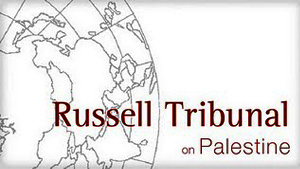
Al-Haq welcomes the findings of the Russell Tribunal on Palestine as they represent an important step towards mobilising public opinion and putting pressure on decision makers with regard to Israeli practices against the Palestinian people in breach of the prohibition on apartheid.
Following the hearing, the third international session of the Russell Tribunal on Palestine concluded that Israel subjection of the Palestinian people to an institutionalised regime of domination manifests itself in varying intensity and forms. Despite distinguishing between Palestinians living under colonial military rule in the Occupied Palestinian Territory (OPT), who are subject to a particularly aggravated form of apartheid, and Palestinian citizens of Israel, systematically discriminated against across the broad spectrum of human rights, the Tribunal finds that Israel’s rule over the Palestinian people collectively amounts to an integrated regime of apartheid as defined under customary international law.
Prior to the South African session of the Russell Tribunal on Palestine, Al-Haq presented a written submission on the legal and administrative measures impacting residency rights and the freedom of movement of Palestinians in the OPT. The testimony focussed on Israel’s institutionalised discriminatory policies that have resulted in the overarching fragmentation of the Palestinian population into sub-groups – West Bank, East Jerusalem and the Gaza Strip. These divisions prevent Palestinians from participating in the political, social, economic and cultural life in the OPT, thus impeding their full development as a group.
On the second day of the Russell Tribunal, Al-Haq provided an oral testimony, highlighting the factual restrictions on Palestinians living in the OPT. Today, more than 580 obstacles, such as roadblocks, checkpoints, trenches and road gates, obstruct Palestinian movement within the West Bank, including East Jerusalem. In addition to these restrictions, Palestinians with West Bank IDs are prohibited from entering East Jerusalem without a permit from the Israeli authorities, which is virtually impossible to obtain. Most of the movement restrictions imposed on Palestinians aim to privilege the over 500,000 Israeli settlers living in settlements established, in contravention of international humanitarian law, throughout the West Bank.
In addition, Al-Haq emphasised the discriminatory policies imposed on Palestinians living in the Jordan Valley, presenting a stark example of segregation between Palestinians and Jewish settlers. The area contains the land and water reserves of the West Bank, but a draconian matrix of Israeli military and administrative measures severely restricts Palestinian access to land and natural resources, including water. Whereas the over 9,000 Israeli settlers living in the Jordan Valley enjoy uninterrupted water supply for their household consumption as well as large amounts of subsidised water for irrigation, Palestinians have no choice but to buy water, which costs up to 5 times the price paid by households connected to the water network.
All States have a legal obligation under international law to cooperate to bring an end to the illegal situation arising from Israel’s practices of apartheid. Al-Haq urges all States to effectively comply with their obligations under international law, including:
- by exercising pressure on Israel to put an end to the violations; and
- by refraining from recognising or providing aid and assistance to Israel for its violations of international law.
-ENDS-


 Operating as a court of the people, the Russell Tribunal on Palestine held its third international session on 5-6 November 2011 in the symbolic city of Cape Town, South Africa. The Russell Tribunal on Palestine addressed the question of whether Israel’s rule over the Palestinian people could be characterised as a regime of apartheid and found that the Palestinian people are subject to an institutionalised regime of domination.
Operating as a court of the people, the Russell Tribunal on Palestine held its third international session on 5-6 November 2011 in the symbolic city of Cape Town, South Africa. The Russell Tribunal on Palestine addressed the question of whether Israel’s rule over the Palestinian people could be characterised as a regime of apartheid and found that the Palestinian people are subject to an institutionalised regime of domination.